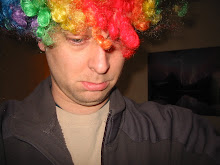AD&D's use and treatment of alignment has its problems. I can see the justification for it in terms of moving plots forward and creating motivations, but it seems too convoluted for its own good at times. Gygax even saw the need to include a graphical representation of the various character alignments. Alignment languages? No. I mean, a Thieves' Cant, sure, I can get to that, but a secret language of alignment? Are alignments religions, or are they secret orders? So how are alignment languages rationalized at all? Are they some kind of "vibe" that one gets, but that still allow you to communicate complex sentences to someone on the same wavelength as you? If that's the case, why does the Player's Handbook state that "speaking an alignment language openly is a serious breach of etiquette", or something to that effect?
Swords & Wizardy suits me a little more: "These core rules don't try to tell the Referee how to handle alignment; the Referee is free to use any system he chooses. If you're playing the game and you want an unofficial default, then the players may choose one of three alignments: Law, Chaos, or Neutrality. Most characters will be neutral. The good guys are Lawful, the bad guys are Chaotic, and anyone just trying to achieve fame and fortune is Neutral." Makes sense eh?
ASC Review: Pyramid of Peril
14 minutes ago







0 comments:
Post a Comment